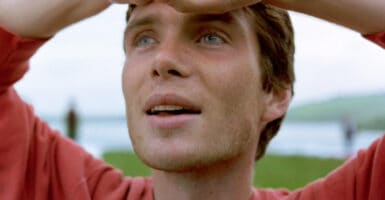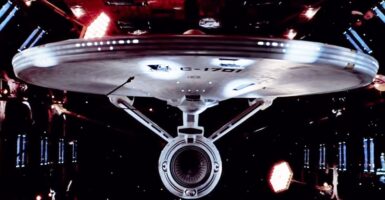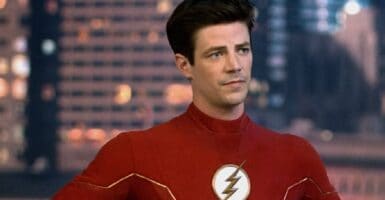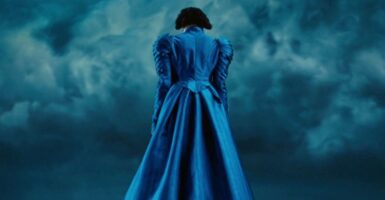Seven Directors Who Should Helm Star Trek 3 If J.J. Abrams Doesn’t
And the George Lucas entry is mostly not a joke. Mostly.
This article is more than 2 years old
With the jaw-dropping news that J.J. Abrams would soon be holding the reigns of not one, but both of the biggest science fiction franchises of all time, most of the discussion has centered around what an Abrams-directed Star Wars film will look like. But what about Star Trek 3?
Realistically, if Abrams decides to only produce Trek 3, but not direct it, it’s likely that the gig will go to one of his collaborators: Damon Lindelof, Alex Kurtzman, or Roberto Orci. As far as I’m concerned, that’s the least interesting possible outcome. Like it or not, Abrams has set the status quo for Trek, at least for the immediate future. While another reboot can’t be considered impossible, a more likely scenario — and potentially a very good one — would be to bring in another strong creative vision who could build on Abrams’ foundation, shore up his weaknesses, and evolve Trek to the next level, whatever that may be. With that in mind, we’ve chosen seven directors we think could make Trek 3 amazing.
Engage…

Brad Bird
Bird is one the names that came up over and over during the months we were all speculating about who could/should direct Star Wars: Episode VII. And while I still think Bird could make an amazing Star Wars film, I’m nearly as intrigued by the prospect of a Bird-directed Star Trek. His animated films such as The Iron Giant and The Incredibles have demonstrated his vivid and colorful imagination, and Mission: Impossible – Ghost Protocol proved that he can be just adept in the field of live-action moviemaking. Bird is one of the best directors out there right now, and most of his films have a strong vein of humanity and optimism running through them, just the sort of positivity that is key to Gene Roddenberry’s vision of our future. Bird has flirted with science fictional concepts such as the titular Iron Giant and the superpowers of The Incredibles, not to mention his upcoming mystery project, Tomorrowland. I’d love to see him unleashed on such a rich pre-existing universe as that of Star Trek.
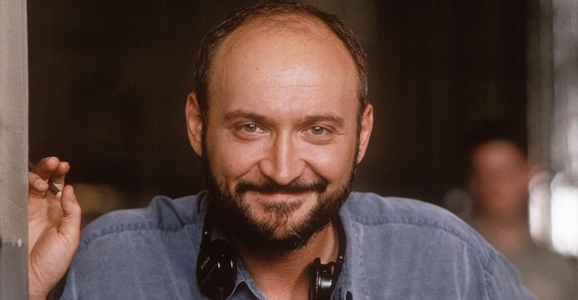
Frank Darabont
Frank Darabont is no stranger to sci-fi, with The Blob, The Fly II, and, most recently, The Mist on his writing resume. His direction on The Mist recalled low-budget creature features of the 1950s, and his longer character studies, such as The Green Mile and The Majestic, run the gamut of dramatic storytelling. Do I need to say how great The Shawshank Redemption was? If Darabont could harness that kind of multi-layered, emotionally gripping narrative and set it in and around the Enterprise and its crew, it would further legitimize genre pics as artful output in the eyes of the Academy. The fact that the villains in his films tend to be representative of the ugliness of humanity could tie in perfectly with the story of Khan (assuming that’s not who Cumberbatch is playing in Into Darkness), or at least a modified version that fits what I just said. So long as there isn’t a finale gut-punch like that of The Mist, I don’t mind seeing Spock and Kirk deal with Darabont’s brand of darkness.
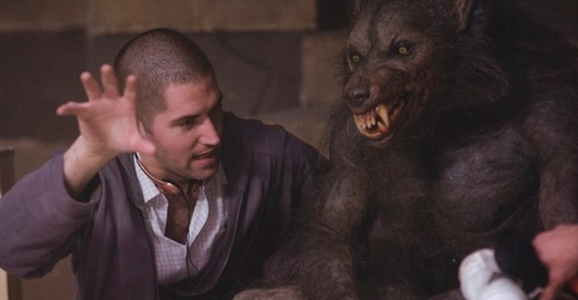
Drew Goddard
You might not know him off the top of your head, but Drew Goddard is the name behind one of the best films of 2012, the brilliant and tragically underseen The Cabin in the Woods. He co-wrote that dazzling display of metafiction with a fellow by the name of Joss Whedon, and Goddard is one of many currently working writers who came up as Whedon acolytes on shows such as Buffy the Vampire Slayer and Angel. Goddard also has an Abrams connection, having written on both Alias and Lost. Cabin in the Woods proved not only that he’s a competent director, but a genuinely talented one, as he had to balance an elaborate and byzantine storyline that threatened to topple if any single part didn’t work properly. Goddard’s work history has provided him plenty of experience juggling large casts of characters — an entry requirement for anybody tackling Trek — and he also understands how to balance humor without teetering into outright parody. The best of the Trek films have always had a sense of humor, and that was one element of Abrams’ first Trek flick that was definitely lacking. The last thing we need is a repeat of Kirk’s giant hands and Scotty flopping around coolant pipes like Buster Keaton.

Duncan Jones
With Moon and Source Code under his belt, Duncan Jones is responsible for two of the most intriguing and entertaining science fiction films of recent memory, and both were made for comparatively small budgets ($5 million for Moon, $28 million for Source Code). The prospect of what he could accomplish with a summer blockbuster budget is enough to make this fanboy salivate. More importantly, Jones’ storytelling strengths lie rooted in character, rather than flashy effects or action sequences, although Source Code also demonstrated he could accomplish a lot with a little when it comes to that area. The core of Trek has always been its humanity, its exploration of character via the crew of the Enterprise, and I think Jones could perfectly manage to tell a huge, exciting story without losing the focus on the smaller scale of Kirk and company as they boldly go to see what’s out there. It’s also worth noting that Jones was recently attached to direct a movie based on the videogame Warcraft, so he’s obviously at a stage of his career where he’s comfortable tackling larger projects, and stories set within pre-existing universes with die-hard fans.

George Lucas
Hear me out. Sure, it sounds like a bigger punchline than “the aristocrats,” but there would be some paper-thin notion of poetic justice about the prospect of George Lucas sitting in the Trek director’s chair, and it’s got nothing to do with J.J. Abrams. The Star Wars/Star Trek faux-feud is the strongest and most widespread in popular science fiction, and though Lucas’ original trilogy, as a whole, destroys any Trek output, the prequel trilogy is arguably worse than everything, except maybe Star Trek: Nemesis. (Admittedly, I liked about 30 minutes of Revenge of the Sith.) And even though Lucas has since produced the most disappointing Indiana Jones sequel and the so-so Red Tails, the vastness of storytelling possibilities already possible within the parameters of Gene Roddenberry’s creation would be an interesting sandbox in which to watch Lucas play, especially with Abrams still on as an executive producer and keeping him in check. I realize this has less of a chance of happening than Disney buying Lucasfil…wait…less of a chance than J.J. Abrams directing Star Wa…wait…Shit, I guess anything can happen in sci-fi.
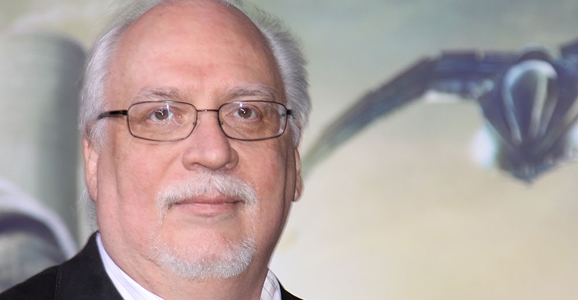
J. Michael Straczynski
Just last week, I wouldn’t have even considered JMS as a possible Trek 3 helmer, simply because he’s never directed a feature film before. His writing credentials have long since been proven via Babylon 5, his work in comics, and his screenplays such as Changeling, but actually directing a film? That’s a whole other ballgame. But then came the word that Joe is about to enter the directing world anyway, via a World War II drama called The Flickering Light. If he succeeds in surmounting that hurdle, I’d be happy to hand him the keys to the Enterprise. Joe is a canny veteran of science fiction storytelling, and perhaps more than anyone else on this list, I’m convinced he could do right by Star Trek. In fact, he actually pitched a very promising Trek reboot concept back before Abrams came along, which showed that he perfectly understood what made Roddenberry’s creation work, especially the dynamic between the core trio of Kirk, Bones, and Spock. He knows how to balance a large cast of characters. He understands the sense of wonder that keeps drawing us back to science fiction as a whole. Directing a huge film like Star Trek would be a challenge for Straczynski, no question, but who ever said we should only attempt things that are easy?
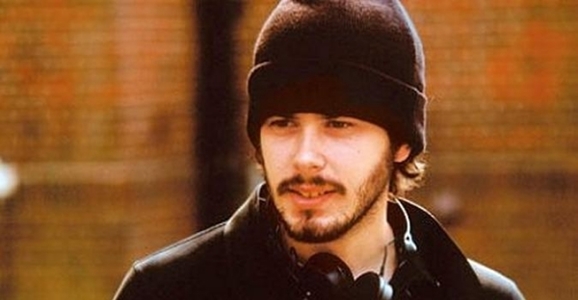
Edgar Wright
For those of you who think the Star Trek franchise has long been missing a pop culture-savvy sense of humor, I present Edgar Wright as the next heir to the director’s throne. Granted, almost all the pop culture references made in the film would probably be from works of art beyond our present time, but I’ve no doubt the Shaun of the Dead helmer could figure out how to make it relevant. Though Abrams may technically be a more proficient director — and that’s arguable — Wright has filled his television and film career with more creativity and visual flourishes than nearly all of the previous Trek movies. With Scott Pilgrim behind him, The World’s End in post-production, and Ant Man on the horizon, Wright is continuing his path into the weird and wacky side of sci-fi and comics, and a Star Trek flick would be the perfect place to show his talent off to a huge audience, as well as reconnect with Simon Pegg outside of their “Three Flavours Cornetto” trilogy. Remember the Spaced episode where Pegg references the “curse” plaguing the even-numbered sequels? This would be lucky number 13.









